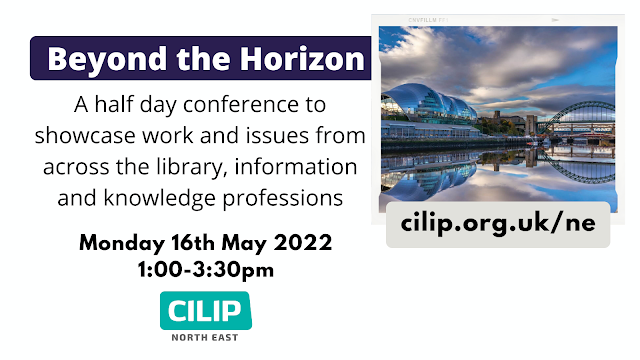CILIP NE Treasurer Beth Houlis shares her reflections on a recent webinar she attended:
In February, I attended a webinar organised
by our reading list management system, Talis Aspire, about decolonising and
diversifying the curriculum through reading lists. The two speakers, Kat
Halliday from the University of Warwick and Sarah Akhtaruzzaman from Aston
University, discussed how their institutions have used reading lists to support
the decolonisation of teaching and learning. They shared how they are
attempting to address the attainment gap between white and BAME students by
diversifying reading lists and ensuring their content accurately reflects the
student population.
Kat explained that there is sometimes too
much onus on reading lists. They show the library’s resources and efforts
towards decolonisation but are not enough to solely address the issue. Reading
lists represent our collections which change organically following trends in
research and teaching. Because Northumbria University Library operates without
subject librarians, we rely on these changes to diversify reading lists. While we
can’t suggest texts to academics, we can support them by maximising discovery
and continuing to highlight resources which support decolonisation. We already
have several reading lists and two collections that focus on celebrating
diversity. In terms of cataloguing, Kat recommends the documentary, ‘Change
the Subject’, which explores the removal of anti-immigrant language from Library
of Congress Subject Headings. So, whilst we can’t curate module reading lists
on behalf of academics, we can continue to support discoverability and promote
the diverse titles which we already stock in our collection.
Another way we can help is by providing academics
with easy access to resources that consider how to begin decolonising and
diversifying research and teaching. Sarah explained that Aston University has
created a LibGuide
about the project which includes a list of
helpful resources. It acts as a ‘toolkit’ to promote the strategy and show
academics how they can begin to decolonise the learning materials that they
recommend to students. The consensus in the discussion was that if we are
unable to choose the texts that academics are recommending on their reading
lists then we must provide information about the project and how academics can
incorporate it into their teaching.
The webinar was very informative, and it
was great to hear how other Universities are using their reading lists to support
the decolonisation of education. It also helped me understand how important it
is for our students to be able to see themselves and their culture represented
in our collection. Information should not be available from only one point of
view. We need to do our best as Library staff to ensure that students can
access texts which highlight their own voices.
The recording of the webinar is available
to watch here.
Beth Houlis
Reading Lists Assistant
